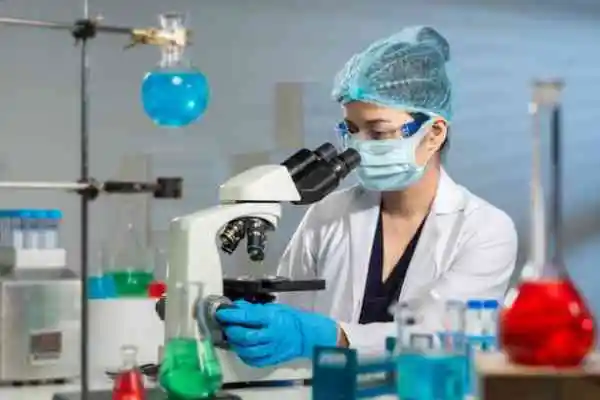From the moment early humans gazed at the stars in wonder to today’s high-tech laboratories, the history of science. tells a compelling story of curiosity, discovery, and progress. Science has always been humanity’s way of understanding the natural world, and its development has shaped civilizations, improved lives, and transformed the planet.
In this blog, we’ll take a look back at the key milestones in the history of science, tracing its evolution from ancient observations to modern-day breakthroughs.
—
Ancient Beginnings: The Foundations of Scientific Thought
Long before the term “science” existed, early civilizations were already making sense of their environment through observation and experimentation.
Mesopotamia and Egypt
The history of science begins in ancient Mesopotamia and Egypt, where early forms of astronomy, mathematics, and medicine emerged. Babylonians developed advanced calendars and could predict eclipses with remarkable accuracy. Meanwhile, Egyptian engineers built massive structures like the pyramids, demonstrating a deep understanding of geometry and physics.
Ancient India and China
In ancient India, scholars laid the groundwork for algebra, chemistry, and medicine. The Ayurvedic system, for example, offered comprehensive medical knowledge thousands of years ago. Similarly, in China, innovations like gunpowder, the compass, and acupuncture highlight a rich tradition of scientific inquiry.
—
Greek and Roman Contributions
Classical Greece is often seen as the birthplace of Western science. Philosophers such as Aristotle, Pythagoras, and Archimedes introduced systematic ways of thinking and established the principles of logic, mathematics, and natural philosophy.
Aristotle and Empirical Observation
Aristotle emphasized observation and categorization, creating one of the earliest versions of the scientific method. He studied biology, physics, ethics, and more, laying the foundation for future scientific work.
The Roman Era
While the Romans were more focused on engineering and technology than pure science, their construction methods, aqueducts, and roads reflect a practical application of scientific principles.
—
The Islamic Golden Age
Between the 8th and 14th centuries, the Islamic world became a center of scientific learning. Scholars translated Greek texts and built upon them, preserving and advancing human knowledge.
Key Figures and Innovations
Alhazen developed early theories of optics and the scientific method.
Avicenna wrote “The Canon of Medicine,” used in Europe for centuries.
Al-Khwarizmi, the father of algebra, introduced the decimal positional number system.
This era was crucial in the history of science, acting as a bridge between ancient and modern thought.
—
The Scientific Revolution
The 16th and 17th centuries marked a turning point in the history of science, known as the Scientific Revolution. Thinkers began to challenge long-held beliefs and relied on experimentation and evidence.
Copernicus, Galileo, and Newton
Nicolaus Copernicus proposed a heliocentric model of the universe, placing the Sun at the center.
Galileo Galilei used telescopes to study celestial bodies and confirmed heliocentric theories.
Isaac Newton developed laws of motion and universal gravitation, revolutionizing physics.
This period emphasized the use of observation, mathematics, and experimentation to understand the world—an approach still central to science today.
—
The Enlightenment and the Birth of Modern Science
During the 18th century, the Enlightenment era further expanded scientific thinking. Rationalism and empirical research flourished, leading to discoveries in electricity, chemistry, and biology.
Antoine Lavoisier identified and named oxygen and helped establish modern chemistry.
Carolus Linnaeus developed a classification system for living organisms.
Science became more specialized and institutionalized, with universities and societies fostering academic research.
—
19th and 20th Century Explosions of Knowledge
The history of science saw massive growth during the 19th and 20th centuries. With the Industrial Revolution, new technologies and fields emerged at an unprecedented rate.
Major Developments
Charles Darwin introduced the theory of evolution through natural selection.
Marie Curie pioneered radioactivity research and became the first woman to win a Nobel Prize.
Albert Einstein’s theory of relativity redefined our understanding of time, space, and gravity.
Medical advancements, the rise of physics and chemistry, and the beginning of computer science transformed societies globally.
—
Science in the 21st Century
Today, science continues to evolve rapidly, tackling global challenges such as climate change, pandemics, and space exploration. AI, genetics, quantum computing, and renewable energy are reshaping our world.
Global collaboration, open-access data, and rapid communication have made science more accessible and inclusive than ever before. The history of science is still being written—with each new discovery building on the legacy of centuries past.
—
Conclusion: A Legacy of Curiosity and Progress
Understanding the history of science is essential to appreciating where we are today and where we’re headed. From ancient civilizations to modern laboratories, science has always been driven by the same fundamental desire: to understand the universe and improve human life.
As we look to the future, we stand on the shoulders of giants—guided by centuries of thought, experimentation, and innovation.



